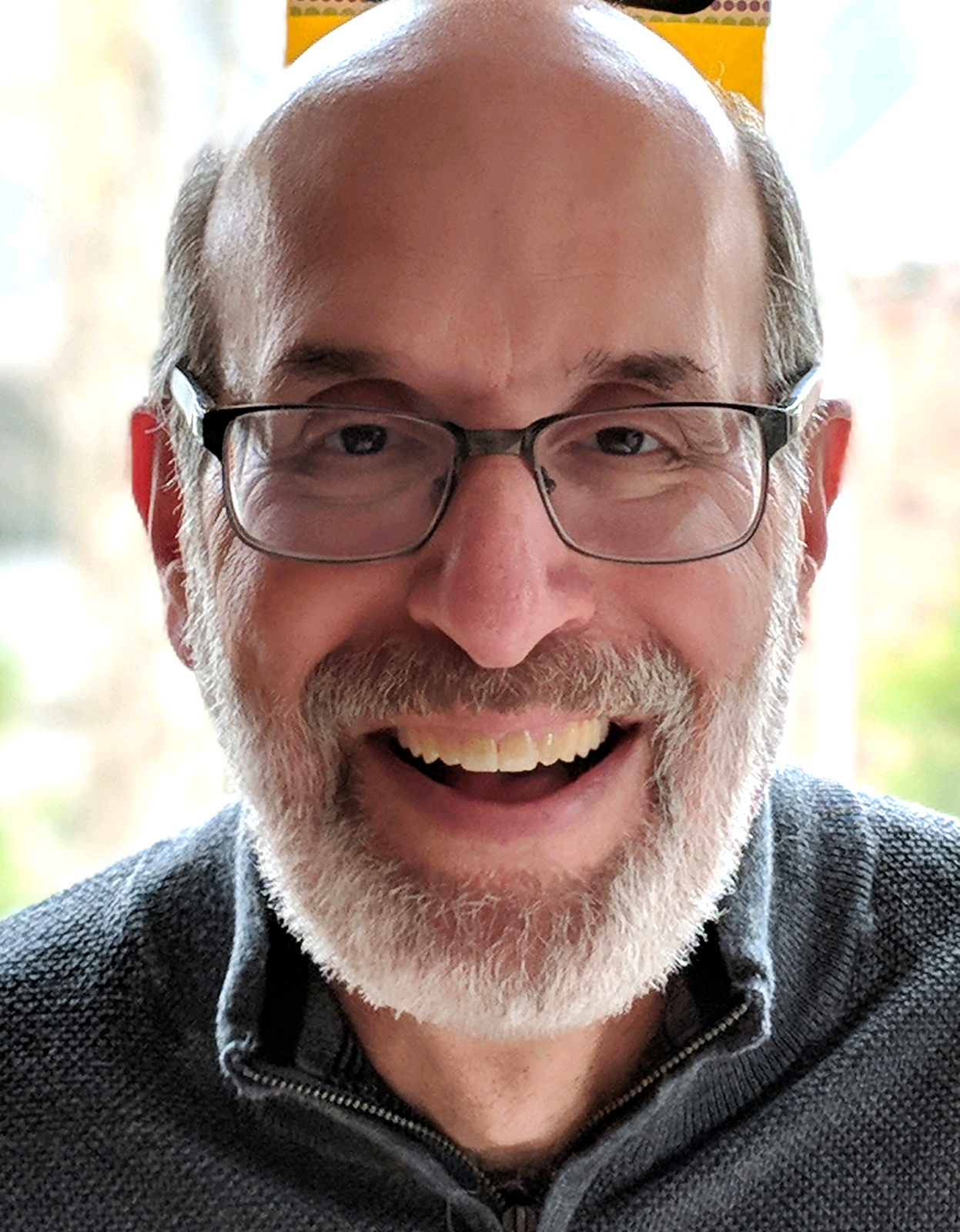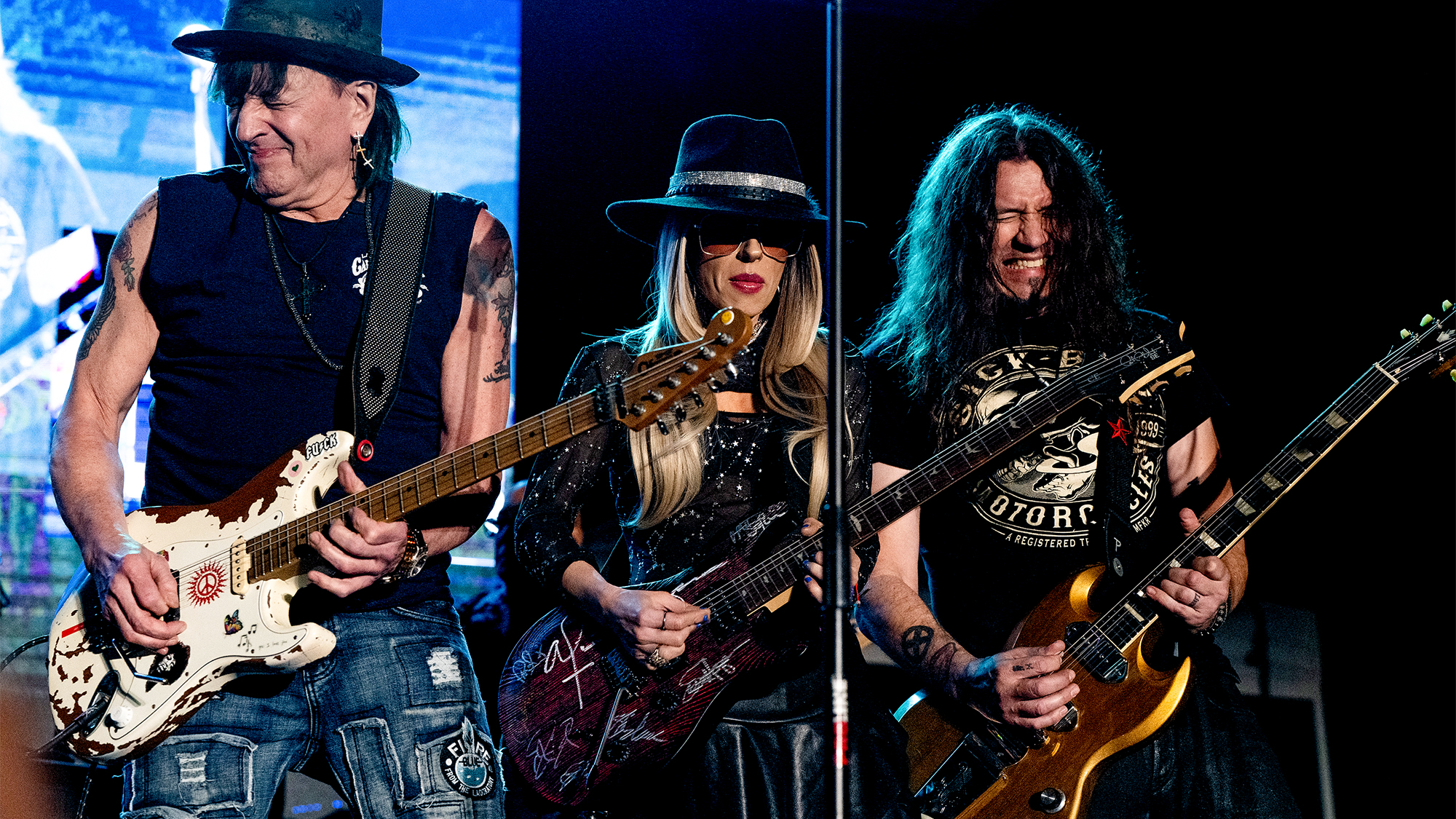“There were a few guitars kicking around. But it just didn't fit in this electronic-based track.” The world’s most famous charity rock song lost its guitar parts in 1984. They’re finally back for 2024
“Do They Know It’s Christmas” co-writer Midge Ure says he struggled to give guitar more prominence on the song
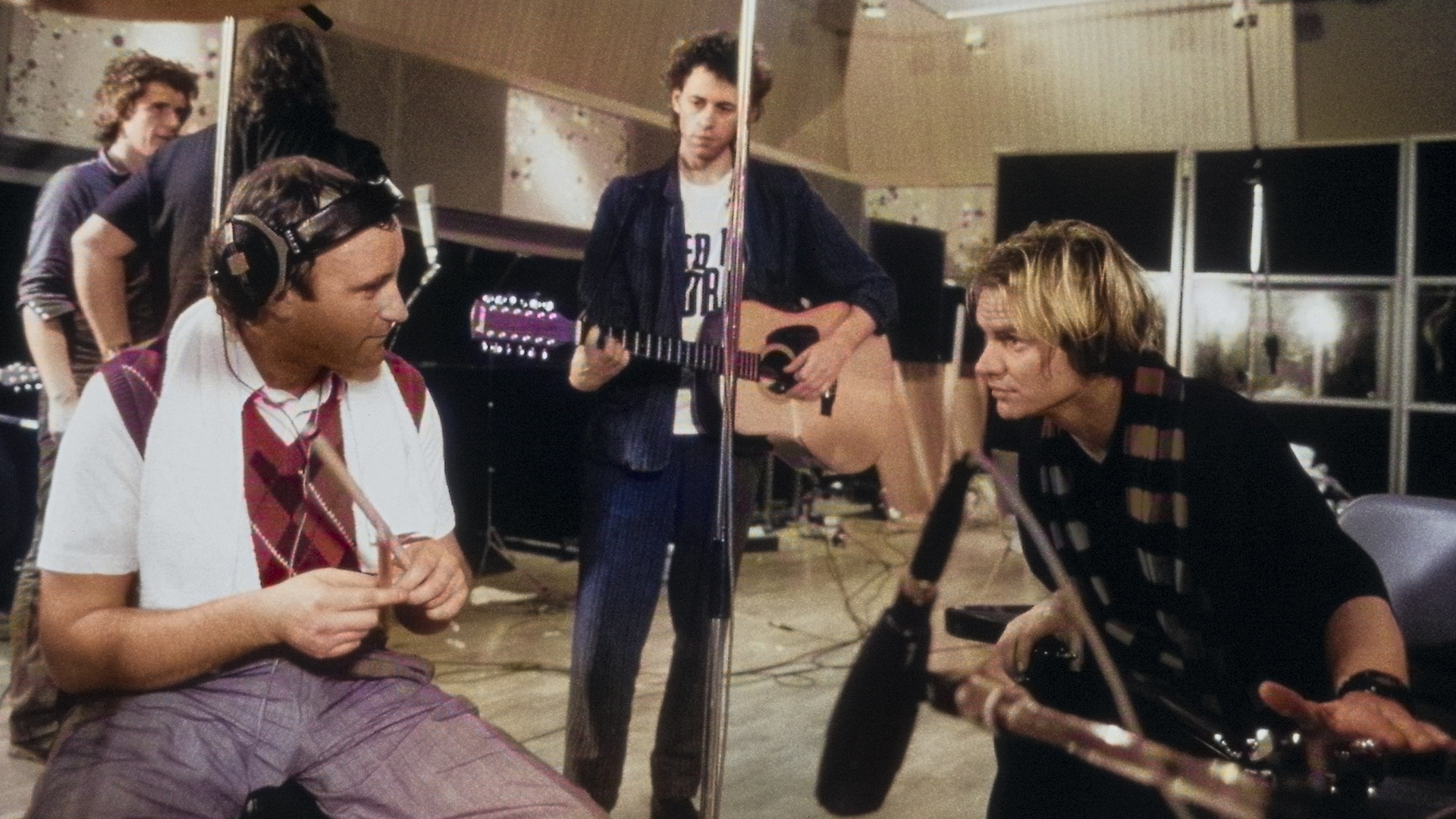
“Do They Know It’s Christmas?" isn't a guitar song, but several players took part in the Ethiopian famine relief charity record, which turns 40 this year. According to project organizer (and Boomtown Rats frontman) Bob Geldof, that includes “anybody who showed up and was banging a guitar” when the sessions went down on November 25 and 26, 1984.
For instance, the original track had Geldof, Midge Ure of Ultravox — who wrote and produced the song with Geldof — as well as Spandau Ballet's Gary Kemp and Paul Weller playing mostly acoustic. In fact, Weller — the former Jam guitarist who at the time was fronting the Style Council and had just scored a hit with “Shout to the Top” — recorded some electric guitar parts that went unused.
Guitars appeared on 1989’s Band Aid II release, courtesy of Chris Rea and Matt Aitken, the latter of the late-1980s Stock Aitken Waterman production team.
But it was Band Aid 20's lineup in 2004 that delivered the goods. It featured veritable guitar army consisting of Radiohead's Jonny Greenwood, Busted's Charlie Simpson, and Dan and Justin Hawkins of the Darkness, plus Paul McCartney on bass.
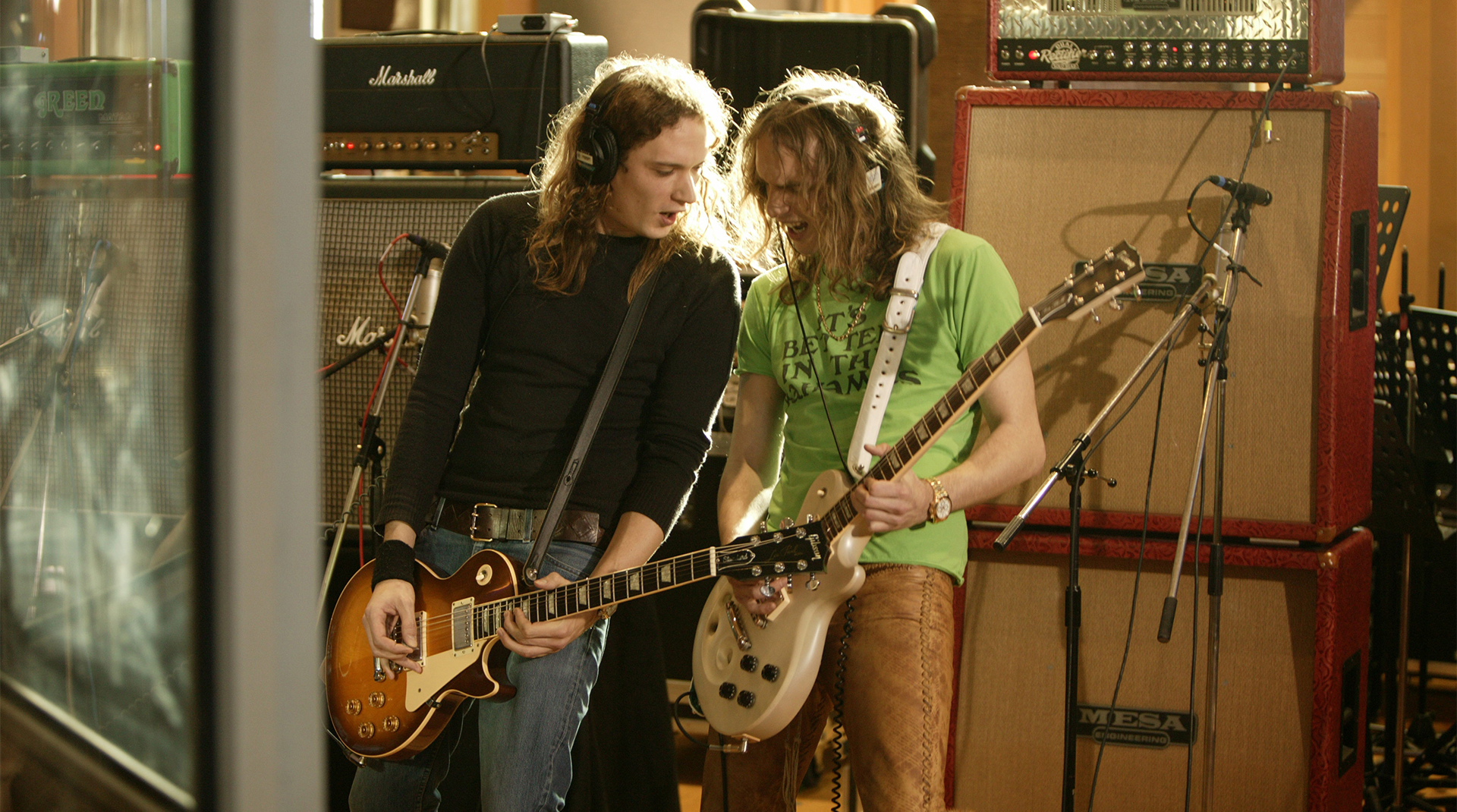
Although guitarists were absent from 2014’s Band Aid 30, where the song was rewritten to reflect Africa's Ebola crisis, they’re all over the newly released “Band Aid – 2024 Ultimate Mix.” The track resurrects guitar contributions from Weller, Ure, Greenwood Albarn and Kemp and spotlights Justin Hawkin's electric harmony line in both the song and its video.
"Instead doing it again with this generation of performers, I thought, Why not take the three generations that made it happen and bang 'em on one single?" Geldof explains of the 2024 Mix, which was produced by Trevor Horn, who also co-produced the original "Do They Know It's Christmas?" at his Sarm East Studios (SST) in London.
Ure recalls that he "tried" to give guitar more prominence in that first edition of the song, which he and Geldof put together in response to an October 1984 BBC news report about the famine in Ethiopia.
All the latest guitar news, interviews, lessons, reviews, deals and more, direct to your inbox!
"There's a bit of Weller in the footage of him trying some guitar parts," Ure notes. "There was nothing wrong with his guitar parts, nothing wrong with his playing at all. It just didn't fit in this electronic-based track. Everything on it was electronic until Phil Collins replaced my shoddy drum programming. It was the same within John Taylor from Duran. He came in and tried to put some bass on it, and again it didn't seem to fit with what was already there."
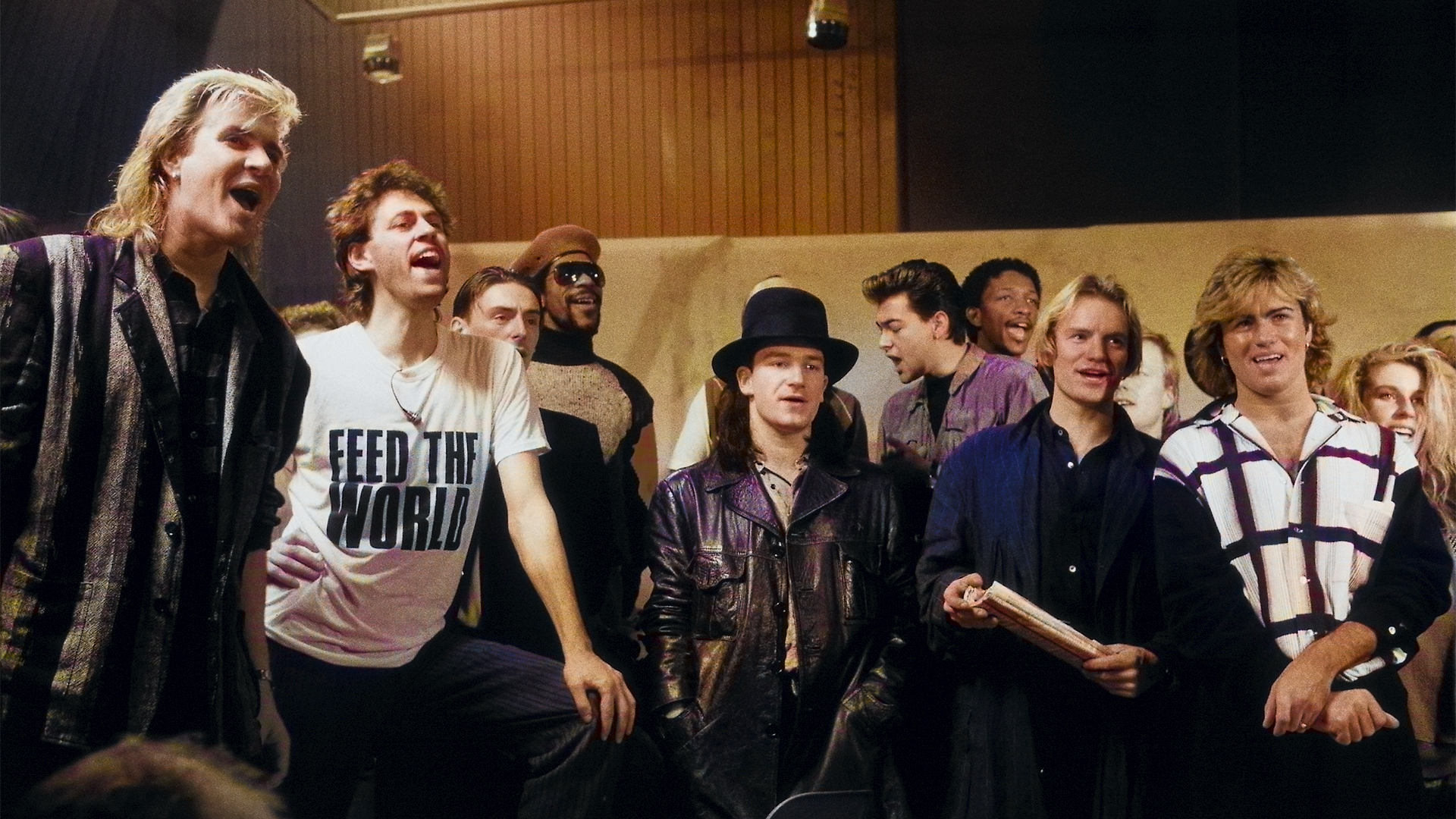
Ure recalls that Weller — who declined an interview request — “did a kind of picking thing with a clean sound. He's not a heavy distortion guy like me. It was kind of jangly, probably using one of my guitars, quite — dare I say — Smiths-like; that kind of jangly, picking thing that was going on at the time, kind of Johnny Marr type of playing. And like I said, it was all very good. I think even he saw it didn’t fit. He felt it didn’t sound right within that track."
Ure acknowledges that he felt married to what he had created for the day-long session (though some of the instrumental bits were recorded the day before)."That can be part of my problem as producer," he says. "Once you've heard something the same way for a few hours, or a few days, it's very difficult to pull it apart, replace parts. It just felt right kind of the way it was, and the guitar parts just didn't fit.
"The way tracks in those days were instigated, you were just blocking out the song, then you'd write the drum part of the song, and once the drum track was down you were kind of fixed, with the synthesized bass, keys and strings. And it was on tape, so very unlike today where you can kick things on and off and move the arrangement around to suit where everybody wanted to go. Back then you had to have the idea, a vision, and you didn't really change things around."
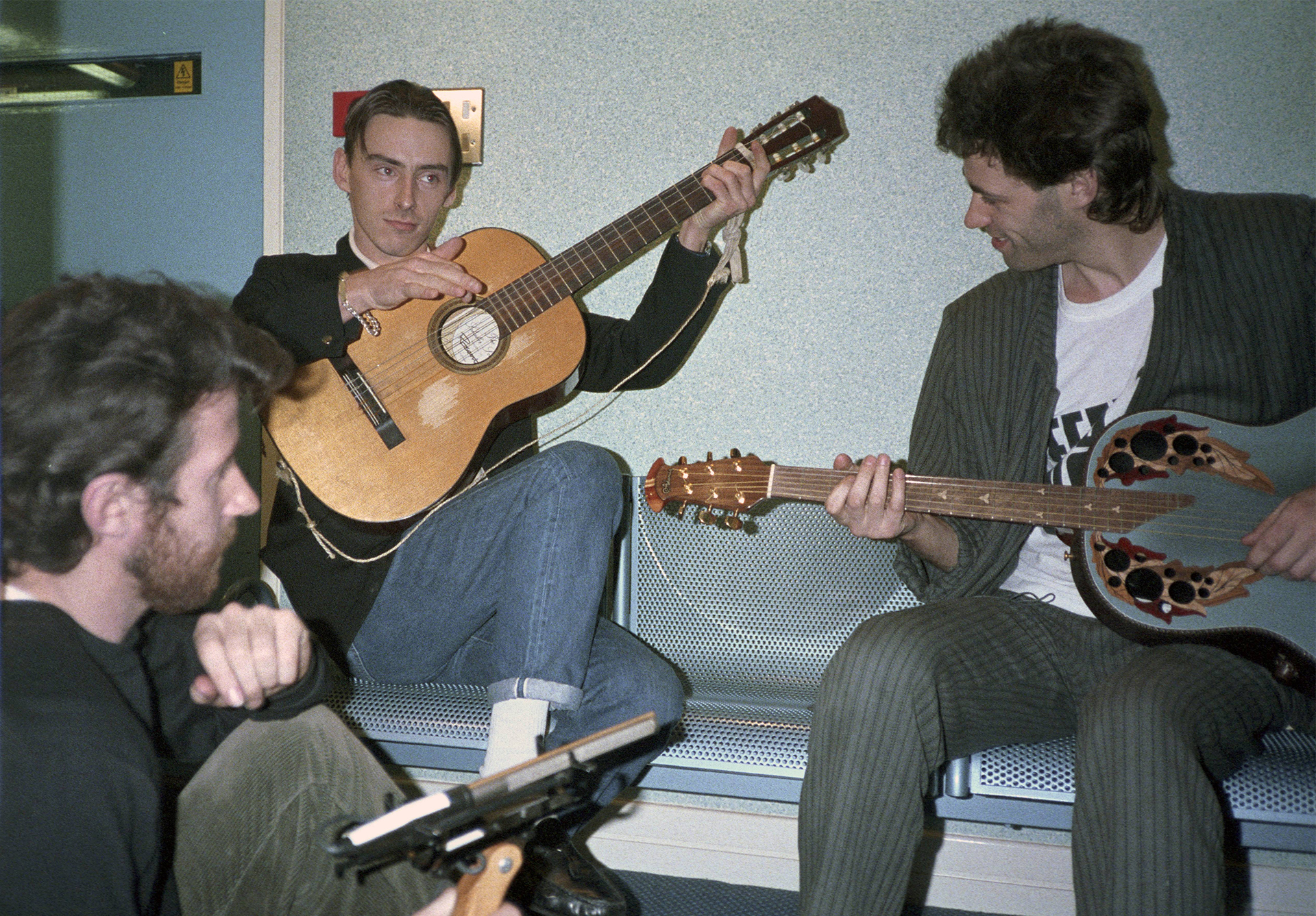
Ure does recall that he, Geldof, Weller and Kemp had fun playing the acoustic guitars during the sessions, even if they didn't wind up on the track. "There were a few guitars kicking around," he remembers. "A gut-string Spanish acoustic, an Ovation Balladeer. They might have been Trevor's or the studio's."
Both Geldof and Ure praise Horn's "2024 Ultimate Mix," the former calling it “genius," while Ure notes that "it was very clear the way...he's interwoven elements of all the recordings. I hear all these elements in there I had constructed, but it feels like a new song, which is great."
Surprisingly, while Ure — a continuing trustee of the Band Aid Charitable Trust — is thrilled with the accomplishments of "Do They Know It's Christmas?,” he has a more measured opinion of its musical merit.
"It's not that good," he says with a laugh. "It's kinda dodgy, kinda rough and ready. It's an Ultravox track. It's got the sounds I was using at the time. The style is Ultravox — despairing, a bit cinematic. It stars with the clanging of doom and ends in a singalong.
“Structurally it's the most bizarre thing,” he adds. “There's no chorus. The singalong thing at the end only came at the end of four days I spent piecing all the music bits together. Bob came to my studio and said, 'Look, we need to sing something like on John Lennon and Yoko Ono’s 'Happy Christmas (War is Over).’ That's when we came up with the 'feed the world' part.
"As a production and a record it excelled. But as a song...both Bob and I have done better. There are many more things I'd like carved on my gravestone than, 'He's the guy who wrote half of 'Do They Know It's Christmas?’"
Since 1984 Band Aid nearly $180 million for emergency aid and long-term relief projects in Africa, including schools and orphanages. Though conceived as a one-off project, the initial song inspired other charitable all-star music efforts, such as USA For Africa and Canada's Northern Lights, as well as the Live Aid concerts in 1985 and the Live 8 shows in 2005.
In addition to the "2024 Ultimate Mix" and its video — including a new documentary about the original record now on the Band Aid YouTube channel — Geldof says a variety of events are planned to commemorate the 40th anniversary of Live Aid in 2025, including CNN and BBC documentaries and the return of the "Just For One Day: The Live Aid Musical" to London's West End with a special performance on July 13, the actual date of the concert.
Donations can be made via charity sites such as giveasyoulive.com or totalgiving.co.uk.
Gary Graff is an award-winning Detroit-based music journalist and author who writes for a variety of print, online and broadcast outlets. He has written and collaborated on books about Alice Cooper, Neil Young, Bob Seger, Bruce Springsteen and Rock 'n' Roll Myths. He's also the founding editor of the award-winning MusicHound Essential Album Guide series and of the new 501 Essential Albums series. Graff is also a co-founder and co-producer of the annual Detroit Music Awards.


